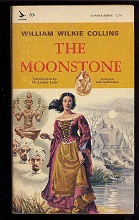Great Expectations
Great Expectations is the thirteenth novel by Charles Dickens and his penultimate completed novel; a bildungsroman that depicts the personal growth and personal development of an orphan nicknamed Pip. It is Dickens's second novel, after David Copperfield, to be fully narrated in the first person.The novel was first published as a serial in Dickens's weekly periodical All the Year Round, from 1 December 1860 to August 1861. In October 1861, Chapman and Hall published the novel in three volumes.
Great Expectations: As a Victorian Novel
Great Expectations exposes about Dickens’s dark attitudes toward Victorian society. In this novel he has discussed about Victorian society’s natural class structure, fault of judicial system, distinction between rural and urban England and immorality of high class. Rural picture of England: In this novel, the picture of rural England is given through the family of Mr. Joe. In the first chapter we find, Joe’s family, consisting of Joe who is a blacksmith, his wife, and the latter’s little brother Pip, lives in the marsh country, down by the river, within twenty miles of the sea. Dissimilarity between city and rural life: A noticeable difference existed between the rural and urban England. The lives of the rural people were very simple. They were honest and caring. But the people of the city like London became complicated. Class Combination: Dickens explores the class system of Victorian England, ranging from the most worthless criminals to the poor peasants of the marsh country to the middle class to the very rich. The people of the upper class, so called gentleman did not combine with the people of the lower class. It is seen through Pip’s discomfort on Joe’s arrival at London. Morality: The moral theme of Great Expectations is quite simple. Here we find; affection, loyalty, and morality are more important than social advancement, wealth, and class. Dickens has established the theme by the character of Pip, largely by exploring ideas of ambition and self-improvement. Pip is an idealist; he immediately desires to obtain the improvement. His desire for self-improvement is the main source of the title of the novel; because he believes in the possibility of progress in life and he has “great expectations” about his future.


